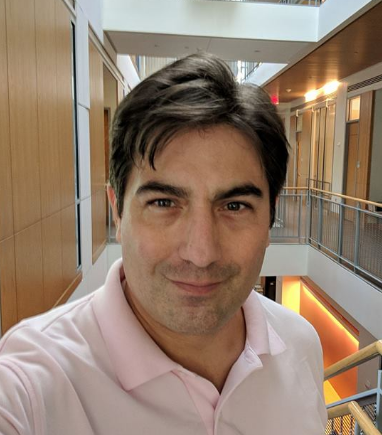Faculty Colloquium Series: Diego von Vacano (POLS) 11/5/19
“Princely Performative Populism and Democracy in the Americas“ Tuesday, November 5, 2019, 4-5 p.m. Location: 311 Glasscock Building Dr. Diego von Vacano Department of Political Science, 2019-2020 Glasscock Faculty Research Fellow Abstract: The rise of Donald Trump as president of the USA has puzzled analysts. In this paper, Dr. von Vacano argues that Trump is […]

“Princely Performative Populism and Democracy in the Americas“
Tuesday, November 5, 2019, 4-5 p.m.
Location: 311 Glasscock Building
Dr. Diego von Vacano
Department of Political Science, 2019-2020 Glasscock Faculty Research Fellow
Abstract:
The rise of Donald Trump as president of the USA has puzzled analysts. In this paper, Dr. von Vacano argues that Trump is best understood not just as a populist, but specifically as a Latin-American-style ‘caudillo’, not as a European-style populist. He examines Trump’s rhetoric, use of racial tropes, and style and employs a Comparative Political Theory and Latin American Political Thought lens to examine these dimensions. He argues that Trump’s use of racial rhetoric, gender/machismo tropes, aesthetic performativity, strongman politics, personalism, and the ‘Civilization vs. Barbarism’ trope make him a Latin American caudillo in the vein of Peron and others. Dr. von Vacano uses this theory to oppose prominent views of populism that focus on Europe an models and which minimize the central figure of a ‘princely,’ Machiavellian single-leader at the heart of populist projects. Dr. von Vacano concludes by showing that there are exclusive and inclusive forms of populism, and that the inclusive plurinational state model from Bolivia and Ecuador provides a form of populism that can teach lessons of inclusion, despite a move away from liberal democracy, to populist politics in the USA.
The Faculty Colloquium offers faculty an opportunity to discuss a work-in-progress with faculty and graduate students from different disciplines. By long-standing practice, colloquium presenters provide a draft of their current research, which is made available to members of the Glasscock Center listserv. Each colloquium begins with the presenter’s short (10-15 minute) exposition of the project, after which the floor is open for comments and queries. The format is by design informal, conversational, and interdisciplinary.
The paper is available to members of the Center’s listserv, or by contacting the Glasscock Center by phone at (979) 845-8328 or by e-mail at glasscock@tamu.edu.
Join the Center’s listserv to receive regular notices of colloquium events.
